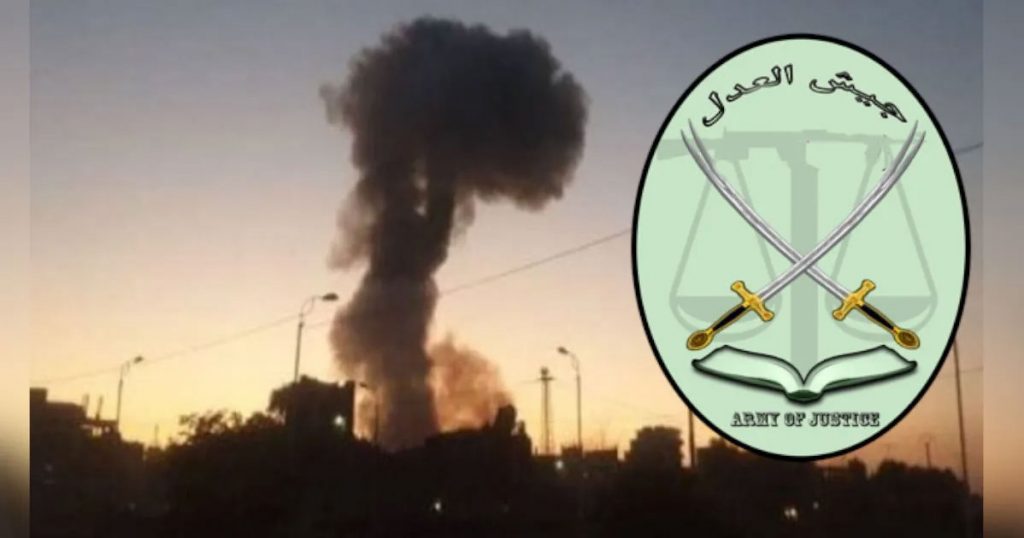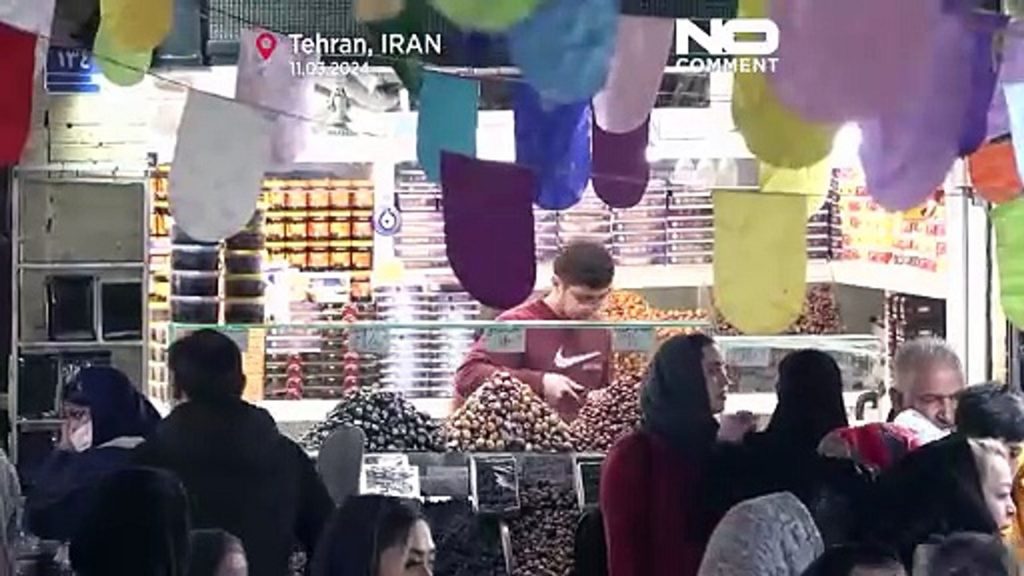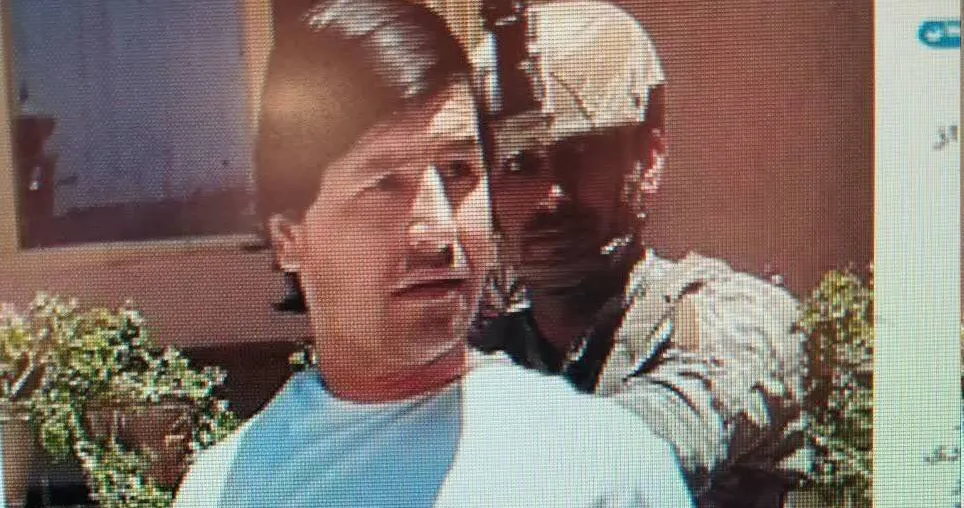
The Government’s Costly Silence Regarding the Currency and Gold Market
In his recent editorial for Quds Daily, columnist Ali Mohammadzadeh has drawn attention to the alarming silence of the government in response to the escalating crisis in the currency and gold markets. Mohammadzadeh asserts that the skyrocketing prices in these sectors have become an all-too-familiar occurrence, almost a seasonal economic tradition. Despite predictions from experts and ordinary citizens alike foreseeing a surge in prices, especially in the new year, recent developments have caught many off guard.
The columnist emphasizes the unexpected and unacceptable nature of the situation, particularly highlighting the government’s lack of reaction. He argues that the government, both in its general capacity and through its economic authorities, holds a direct responsibility for addressing such crises. Its failure to act not only raises eyebrows but also fuels speculation within society.
Mohammadzadeh suggests that the government’s passivity inadvertently strengthens the belief among the public that it may be benefiting from soaring prices, possibly by profiting from the sale of oil in foreign markets at inflated rates. Moreover, he warns of the cascading effects of unchecked price increases, predicting a ripple effect that could engulf various sectors beyond just currency and gold. Without prompt intervention, Mohammadzadeh warns, the nation could face an uncontrollable surge in prices across all domains, with long-lasting consequences.
In conclusion, Mohammadzadeh stresses the urgent need for the government’s economic team to implement effective measures to curb inflationary pressure, cautioning that failure to do so may lead to a catastrophic escalation in costs throughout the country. The government’s ability to foster public participation in national production and the economy hinges on its ability to instill confidence through action rather than mere rhetoric. If, from the outset, it fails to demonstrate a genuine commitment to combating inflation and fostering economic stability, particularly evident in unusual fluctuations in currency prices, it undermines trust essential for productive partnerships. Regrettably, the current conspicuous silence of the government regarding soaring prices in currency, gold, automobile and retail markets is eroding public confidence. To cultivate a robust partnership with the populace, the government must actively engage in addressing price fluctuations and align itself with the public in the price war.
I Hope the Reports of Change in the Economic Team Are Not Denied
In his recent editorial for Hamedli Daily, Iman Islamibin has drawn attention to the urgent need for changes within the economic team of the Raisi government. He highlighted the visible failures of the current administration, pointing to a series of missteps and the lingering influence of previous administrations, particularly that of Rouhani.
Islamibin’s editorial also expressed disappointment at the denial of news regarding a potential shakeup in the economic team, suggesting that such changes are essential to prevent further deterioration of the country’s economic situation. He criticized the government’s apparent lack of transparency and suggested that President Raisi may not have a clear grasp of the economic challenges facing the nation.
Despite skepticism about the potential impact of a new economic team, Islamibin acknowledged that even maintaining the status quo would be preferable to the new state of affairs. He lamented the recent turmoil in various markets and the government’s perceived inaction, which the columnist believes only serves to deepen feelings of despair and helplessness among the populace.
Furthermore, Islamibin speculated on the motives behind President Raisi’s apparent passivity, suggesting that he may be prioritizing obedience over addressing the pressing issues at hand. He criticized the government’s failure to acknowledge the root causes of the country’s problems and suggested that meaningful reform requires a departure from the current approach.
In conclusion, Islamibin called for a more proactive and transparent approach from the Raisi government, emphasizing the need for genuine efforts to address the economic challenges facing the nation. Islamibin urged President Raisi to take decisive action to improve the situation for the benefit of all citizens.
A Security Status Review
An article in Jomhouri Eslami newspaper has delved into the security landscape of Iran, reflecting on historical events such as the assassination of Ayatollah Mohammad Beheshti and the Hafte Tir bombing. The piece recalls the tragic incident of the explosion at the headquarters of the Islamic Republic Party in Tehran on Tir 7, 1360, which resulted in the martyrdom of Ayatollah Beheshti and 72 other revolutionary figures.
The editorial reminisces about the unity and resilience displayed by the Iranian people in the aftermath of such tragedies, with chants echoing, “What is the enemy thinking — Iran is full of heaven?” However, it also highlights a somber reflection from Ayatollah Mousavi Ardabili, who, despite the prevailing sentiment, emphasized the irreplaceable loss incurred by the death of Ayatollah Beheshti, challenging the notion that Iran was “full of heaven.”
The editorial emphasizes the importance of realism in assessing Iran’s trajectory, suggesting that the nation would have achieved greater progress had figures like Ayatollah Beheshti not been prematurely lost. It laments the current state of affairs, rife with injustice, economic crises and setbacks, positing that with Beheshti’s continued presence, Iran would have led the region in various domains and gained international prominence.
Furthermore, the editorial draws attention to recent incidents that have claimed the lives of numerous prominent individuals, urging a reconsideration of slogans that trivialize such losses. It questions why the nation allows its valuable human capital to be squandered and why sufficient measures are not taken to improve security, particularly in sensitive regions like Sistan and Balochistan.
The article calls for efficient management and prioritized allocation of resources to prevent further tragedies, stressing the need for a robust security apparatus to safeguard against external threats and internal vulnerabilities. It underscores the importance of utilizing the province’s potential and addressing its unique security challenges with strategic foresight and decisive action.
It concludes that in recent months, Syria has experienced significant losses attributed to the treachery of infiltrators. Despite repeated warnings, there has been a lack of effective response. Questions arise regarding Russia’s control over Syrian airspace and its failure to prevent attacks by the Israeli military on Iranian forces using advanced defense systems. The absence of similar incidents involving Russian forces prompts reflection on the adequacy of Syria’s security measures. Rather than solely reacting to incidents, there is a call for proactive measures to address vulnerabilities. This situation prompts a critical review of Syria’s security posture.
Iran Should Not Do What Netanyahu Expects
In his recent editorial for Setar-e Sobh, Hossein Kanaani underscores Iran’s right to respond to Israel’s blatant aggression, particularly the attack on the Iranian consulate in Damascus. He argues against succumbing to pressure for immediate military retaliation, warning that such a response would only serve the interests of the extremist Israeli government.
Kanaani asserts that the decision to retaliate ultimately rests with Iran’s leadership, emphasizing that no external entity should impose terms on the commander-in-chief. While affirming Iran’s resolve to seek revenge, he advocates for a strategic approach that aligns with the leadership’s objectives, ensuring that any action taken serves to make the Zionists regret their actions and disrupt their regional ambitions.
Highlighting the various provocations faced by Iran, including the recent attacks on Iranian military personnel, Kanaani acknowledges Iran’s military capabilities but warns against falling into the trap of direct confrontation orchestrated by Netanyahu. He argues that engaging in direct conflict with Israel would inevitably draw the United States into the fray, amplifying the scale and stakes of the confrontation.
Kanaani attributes Netanyahu’s aggressive posturing to his political vulnerabilities, suggesting that he seeks to deflect internal criticism and shore up support by rallying around a foreign enemy, namely Iran. However, he urges Iran to exercise strategic patience and avoid playing into Netanyahu’s hands, as Israel’s internal challenges and international pressures could ultimately lead to his downfall.
The columnist predicts a positive outcome for Iran, citing internal unrest in Israel, economic woes, and growing opposition to Netanyahu’s leadership. He suggests that Iran’s measured approach, coupled with continued Palestinian resistance, will contribute to Netanyahu’s eventual downfall, heralding a new dawn for the region.

Jaish al-Adl Attack in Chabahar and Rask

Following the recent attacks attributed to the Jaish al-Adl militant group in Chabahar and Rask, the arrest of several individuals connected to these incidents has been announced alongside calls for accountability from parliamentary members.
Head of the Judicial Organization of the Armed Forces Ahmadreza Pourkhaqan revealed on Friday, April 17, that multiple individuals were apprehended for their alleged involvement in supporting the Chabahar and Rask attacks. However, specific details regarding the number and identities of the detainees, as well as the circumstances of their arrest, were not disclosed.
The clashes, which occurred on Thursday, April 16, resulted in casualties on both sides. At least 11 government forces and 18 members of the Jaish al-Adl group were reported dead during confrontations between Iranian police and military units and Jaish al-Adl militants in Sistan and Balochistan Province. The group itself has claimed that the number of casualties among government forces exceeds official figures.
Reports from the IRGC Ground Force’s southeast security base indicate that Jaish al-Adl simultaneously targeted five public locations, as well as military and law enforcement installations in Chabahar and Rask.
Jaish al-Adl, initially emerging approximately 14 years ago, rose to prominence after the weakening of the Jundallah group following the execution of Abdul Malik Rigi in 2009. The transition saw former Jundallah members joining Jaish al-Adl’s ranks.
Medical authorities in Chabahar have reported at least 44 individuals wounded in the recent attacks, with two individuals admitted to specialized care units and 29 discharged following treatment.
Mahmoud Abbaszadeh Meshkini, a member of the Parliament’s National Security Commission, informed ILNA news agency that the recent attacks will be a focal point of discussion when the Parliament reconvenes on Sunday, April 19.
Meshkini identified Pakistan’s harboring of these groups and internal security management as pivotal factors in the recent attacks in Sistan and Balochistan Province. He emphasized the need for accountability among domestic officials and stakeholders.
While not specifying names or titles of these officials, Meshkini highlighted the recurring challenge of attacks by groups like Jaish al-Adl, raising questions about the effectiveness of Iran’s regional security efforts.
Meshkini stressed the necessity for a more assertive dialogue with Pakistan, citing concerns about potential repercussions hindering timely action. He did not elaborate on the nature of these potential costs.
Relations between Iran and Pakistan faced strain last year following an IRGC missile strike on Jaish al-Adl positions in Pakistan, prompting retaliatory actions. However, both nations later declared the resolution of tensions.
Nonetheless, the militant group has declared that 168 of its members participated in recent clashes, claiming to have killed and wounded over 200 military personnel while losing 18 of its own members. These clashes, according to Jaish al-Adl, were part of coordinated operations named “Ramadan al-Mukaram.” The group stated that these attacks were carried out in cooperation with other militant units and intelligence agencies.
Their targets included various military and security installations in Chabahar, Rask, and Sarbaz. Jaish al-Adl asserted that their aim was to disrupt the development of the Makran coastal project, criticizing it for allegedly disadvantaging Baloch Muslim communities and promoting sectarianism.
In their statement, Jaish al-Adl expressed regret for the casualties among security forces but justified their actions, accusing the military of supporting what they view as an oppressive regime. They urged military personnel to resign and find alternative employment to avoid further harm.
Local reports included footage of wounded IRGC members being airlifted for medical treatment following the attacks. Some injured soldiers, reportedly in critical condition, were transported to Iranshahr Hospital.
Tehran Supermarket Thefts See Upsurge

In June of last year, Masoud Satayshi, the judiciary’s spokesperson, highlighted a concerning uptick in theft incidents. The Statistical Center of Iran also corroborated this trend, indicating theft as the country’s second major crime following drug use. Despite varying specifics, statistics suggest a staggering fourfold increase in theft over the past five years. Concurrently, there has been a significant surge in the price of goods, with reports from the Statistical Center spotlighting notable hikes in various sectors, such as red and white meat, fish, beverages, and fruits.
Against this backdrop, a Hamehan reporter conducted a survey across different areas of Tehran, including Ferdous Blvd., Atabek Khavaran, Vahdat-e-Islami, Wasal St., Motahari, Dastghib, Jalal Al-Ahmed fruit and vegetable areas, and the Windmill area in Karaj. Shopkeepers interviewed shared insights into the impact of price hikes on consumer behavior and its potential correlation with increased theft incidents.
One supermarket owner in Tehran’s Dastghib neighborhood, with three decades of experience, attributed rising theft rates to escalating poverty levels. He noted a variety of perpetrators, spanning from children to adults, often concealed by their appearances. Employing strategies like placing valuable items out of reach and installing CCTV cameras, he grappled with the challenge of theft prevention. Additionally, he observed a surge in begging, particularly for food, alongside a rise in loan requests and a decrease in loan repayments, reflecting diminished purchasing power and sluggish sales.
Similarly, another supermarket proprietor in the Ferdous Blvd area recounted a noticeable spike in theft incidents over the past few years. He emphasized the diverse profile of offenders, citing instances where genuine hunger compelled individuals to steal. To mitigate losses, he adopted precautionary measures such as rearranging merchandise and assigning staff to monitor customers. Reflecting on societal responsibilities, he urged governmental intervention to address underlying issues of poverty and hunger.
Meanwhile, Jaafar, a longstanding small supermarket owner in Tehran’s Vahdat-e-Islami neighborhood, observed a shift in theft patterns, with even seemingly respectable individuals engaging in illicit behavior. Notably, he noted an increase in credit purchases, albeit limited to trusted customers.
Karaj Detainees; Members of Daesh or Members of the National Resistance Front of Afghanistan?

Iran’s police force reported on Farvardin 18, 1403, the arrest of nine individuals allegedly linked to Daesh, accused of plotting terrorist activities within Iran. However, conflicting accounts from journalists and independent sources suggest the detainees have affiliations with the National Resistance Front of Afghanistan, known for clashing with the Taliban.
Quoting a source close to Ahmad Massoud’s National Resistance Front, BBC Farsi refuted the association of one arrestee, Mohammad Zakir, with Daesh, and asserted his active involvement with the Afghan National Resistance Front instead. Iranian authorities claimed Zakir’s arrest, alongside others, in Mahshahr Karaj, branding them as Daesh members. Additionally, two more individuals were reportedly apprehended in a separate operation.
Independent journalist Zila Bani Yaqoub highlighted that some detainees in Karaj are the offspring of prominent National Resistance Front commanders who were killed in conflicts with the Taliban, including the children of Commander Mohammad Khairkhah, Commander Qazi, and Commander Kabar Andrabi.
A former Afghan Parliament member corroborated these claims, affirming that Zakir and his siblings, in police custody, are the offspring of Khair Mohammad Khairkhah, a respected National Resistance Front figure who fought against the Taliban and was killed in Baghlan two years prior. The ex-lawmaker revealed that seven arrestees, purportedly Daesh affiliates, are relatives and deemed their detention a “major misunderstanding.” He clarified that they were detained during a mourning ceremony for Khairkhah’s wife.
Further developments on Farvardin 19, 1403, saw Iranian news agencies quoting the police spokesperson, Saeed Montazeral Mahdi, who alleged the involvement of the arrested individuals in planned suicide operations within Iran. Conversely, Mohammad Nasim Madbar, another former Afghan parliamentarian, contested this narrative, asserting the injured individuals were returning from a mourning ceremony and were wounded superficially while fleeing police gunfire due to lack of proper documentation.
Madbar dismissed the authenticity of images depicting Zakir’s arrest, asserting they were from an earlier incident in Kabul where he was briefly detained and released amid political rivalries within the previous Afghan government.
IranWire
